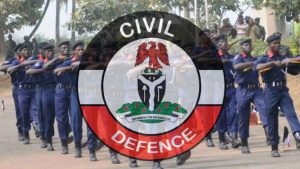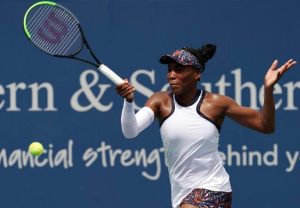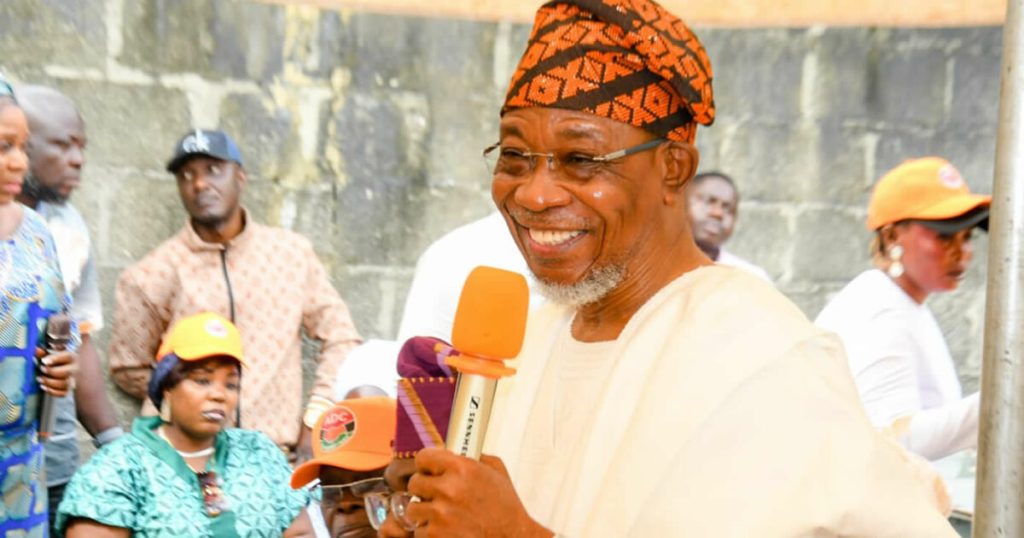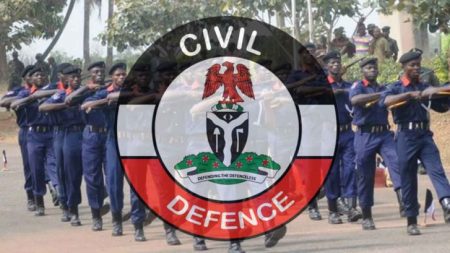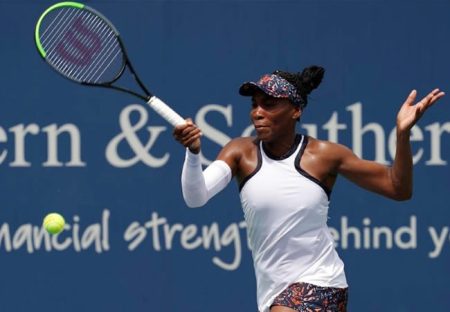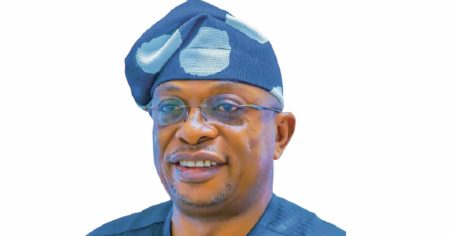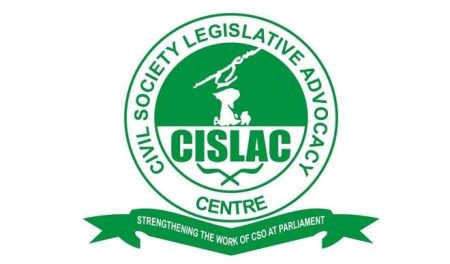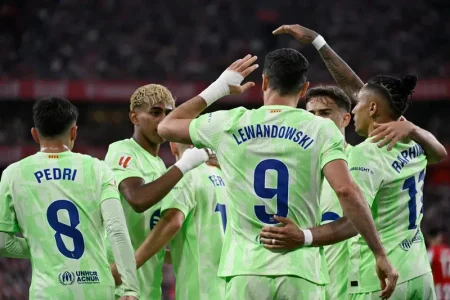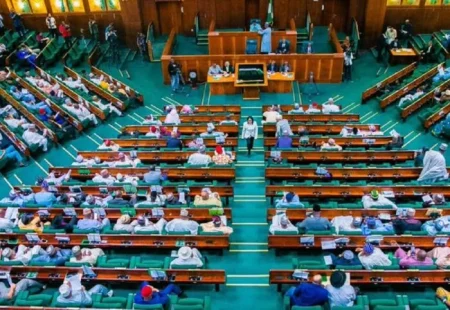Paragraph 1: A Shift in Political Allegiances and the Promise of People-Centric Governance
Rauf Aregbesola, the National Secretary of the African Democratic Congress (ADC), underscored the party’s commitment to prioritizing the well-being of the Nigerian people. He emphasized that the populace should be the central focus of political activity and governance, warning that any government neglecting this fundamental principle risks losing its relevance. Aregbesola’s remarks came during a significant event in Lagos, where a wave of defectors from established parties like the Peoples Democratic Party (PDP), the All Progressives Congress (APC), and the Labour Party (LP) formally joined the ADC. This influx of political figures, including former PDP Chairmen Muritala Ashorobi and Tunji Shelley, ex-Vice Chairman (Lagos Central) Tai Benedict, and former Youth Leader Chief Niyi Adams, signaled a growing dissatisfaction with the status quo and a search for alternative political platforms. Aregbesola’s message of people-centered governance resonated with these new members, offering a potential avenue for their political aspirations and a chance to contribute to a different vision for Nigeria.
Paragraph 2: Navigating Hardship and Uncertainty: The Call for a New Direction
Aregbesola’s address painted a stark picture of Nigeria’s current state, describing a nation grappling with hardship and uncertainty under its present leadership. He argued that this difficult period necessitated a transcendence of partisan politics and a concerted effort to chart a new course for the country. His diagnosis of the nation’s challenges went beyond mere political rhetoric, highlighting the tangible impact of current policies on the lives of ordinary Nigerians. The sentiment of unease and the desire for change, echoed by the defectors, underscored the urgency of Aregbesola’s call for a different approach. He framed the ADC as a vehicle for this much-needed transformation, positioning the party as a beacon of hope amidst the prevailing difficulties.
Paragraph 3: Empowering the Youth and Ensuring Inclusivity: The ADC’s Constitutional Framework
Aregbesola placed significant emphasis on the ADC’s commitment to youth empowerment and inclusivity. He highlighted provisions within the party’s constitution that guarantee substantial representation for both youth and women in leadership positions, a move he described as not mere tokenism, but a strategic recognition of the vital role these demographics play in shaping Nigeria’s future. The allocation of 35% representation to each group, potentially resulting in a combined representation exceeding 50%, demonstrated the ADC’s intention to actively engage and empower these traditionally underrepresented groups. This focus on intergenerational equity and gender balance served to differentiate the ADC from its competitors, presenting it as a forward-thinking party attuned to the needs and aspirations of a changing demographic landscape.
Paragraph 4: Fostering Internal Democracy and Collective Ownership: A Departure from Traditional Political Structures
Beyond its commitment to youth and women, Aregbesola also emphasized the ADC’s dedication to internal democracy. He stressed that the party is not beholden to any single individual or financier, but rather functions as a collective of patriotic citizens united by a common goal: to rescue and rebuild Nigeria. This emphasis on collective ownership and participatory decision-making stood in contrast to the often top-down structures prevalent in other political parties. Aregbesola’s message resonated with the ideals of grassroots mobilization and citizen engagement, portraying the ADC as a platform where every member’s voice is valued and contributes to the party’s direction.
Paragraph 5: A Call to Action: Rebuilding Nigeria for Future Generations
Aregbesola’s speech was not merely a presentation of the ADC’s principles; it was also a call to action. He charged the assembled members, both new and established, with the critical task of rescuing Nigeria from its current trajectory and building a nation worthy of future generations. He characterized the ADC’s mission as an urgent intervention, a necessary step to prevent the country from sliding further into decline. This sense of urgency underscored the gravity of the situation as perceived by Aregbesola and emphasized the need for immediate and concerted action. He framed the ADC’s approach as a bottom-up, constructive process, urging members to focus on building the party’s foundation and spreading its message throughout the country.
Paragraph 6: External Validation and the ADC’s Potential: Atiku Abubakar’s Endorsement
Former Vice President Atiku Abubakar, represented by Professor Ola Olateju, lent his support to the ADC, describing it not just as a political party but as a movement for a better Nigeria. This endorsement from a prominent political figure added further weight to the ADC’s growing momentum and signaled its potential to become a significant force in Nigerian politics. Abubakar’s characterization of the ADC as a movement, rather than simply a party, reinforced Aregbesola’s message of grassroots mobilization and citizen-driven change. This external validation, coupled with the influx of new members, positioned the ADC as a party to watch in the evolving Nigerian political landscape.


